Unlike other games in its Soulsborne/Soulslike subgenre, the new action RPG Thymesia features a skill tree reminiscent of action-adventure titles like Assassin’s Creed, Middle-earth: Shadow of Mordor, or The Batman Arkham series (among many others), which makes the indie game from OverBorder Games extremely approachable to veterans newcomers alike.
Thymesia has six skill trees: Saber, Deflect, Dodge, Claw, Feather, and Strategy, which grant Corvus unique abilities that he can utilize against his many foes in Hermes Kingdom. Although all of the game’s talents are useful in their own way, some work better in conjunction certain attributes and builds, while a few of clearly stand out from the rest of the pack as must-haves. This guide will demonstrate the essential talents that should be acquired with unspent talent points in Thymesia for any build, sorted by their respective skill trees.
Saber Talents
The Saber skill tree focuses on improvements for Corvus’ primary weapon of the same name. While the entire tree is useful, two abilities deserve recognition:
Healing Execution Lv1 & Lv2
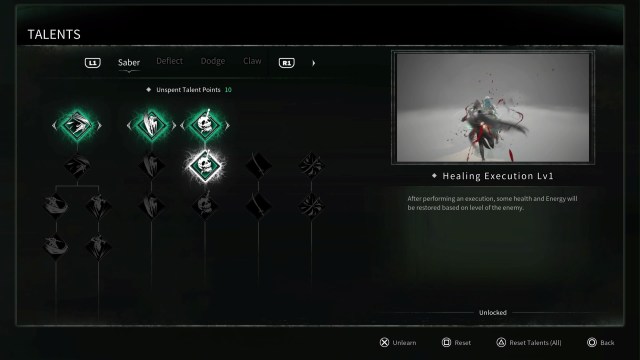
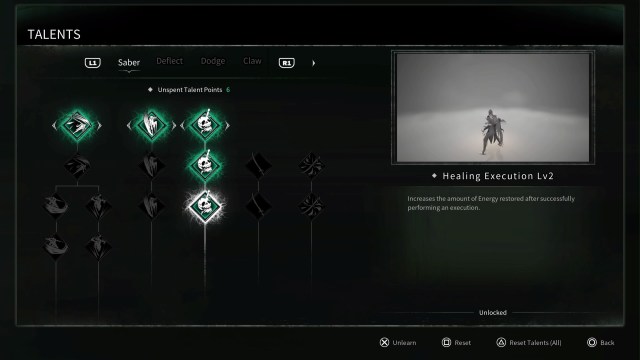
The Healing Execution talent completely changes the complexion of Thymesia. Rather than using up precious potions to keep Corvus alive, through leveling up this ability with two Talent Points, Corvus can siphon health and energy from executing dazed enemies, saving his potion reserves, and making him much harder to kill.
Energised Weapon Lv1 & Lv2
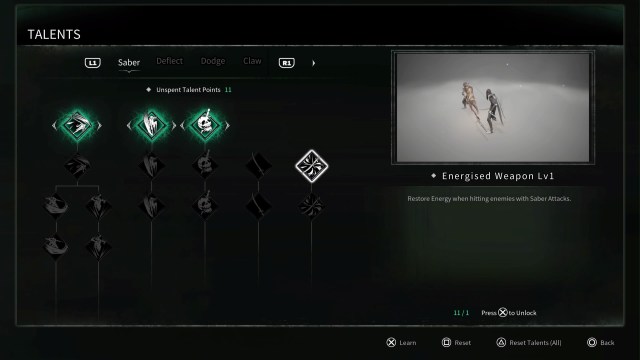
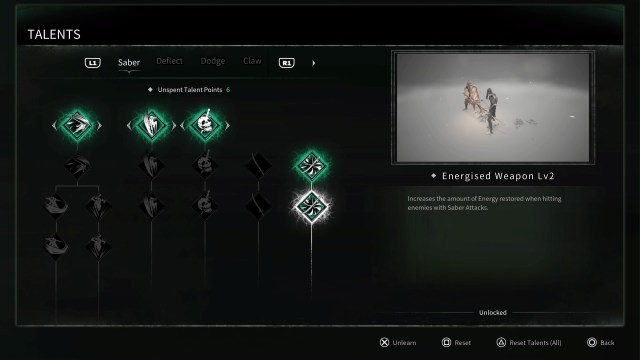
By investing in this talent, through the simple swing of his primary weapon, the saber, Corvus can damage enemies, while replenishing his Plague Energy. That’s a win-win.
Deflection Talents
While I find myself partial to dodging, deflecting is a defense that comes in handy throughout Thymesia’s quests, and you’re going to want to level up at least this one deflection talent:
Energised Deflect Lv1 & Lv2
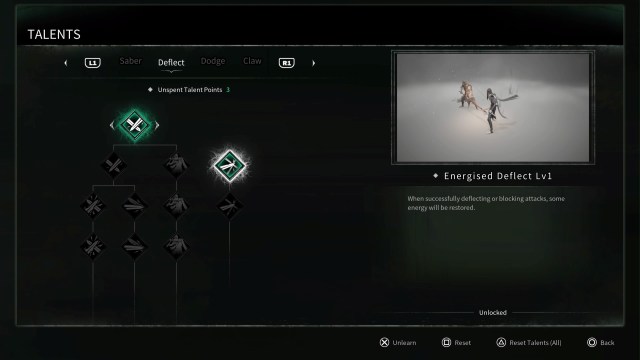
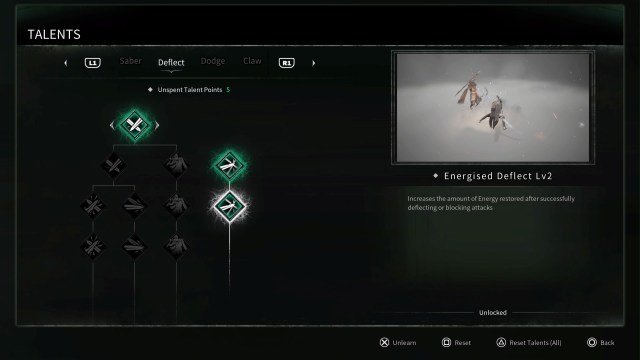
Similarly to the Energised Weapon, Energised Deflect helps Corvus to restore Plague Energy simply through blocking enemy attacks. If you’re running low on energy in the midst of battle, timing deflections correctly can help to bide time until Corvus can go on the offensive with his own Plague Weapons.
Dodging Talents
Despite Thymesia’s lack of a stamina bar, Corvus can’t infinitely dodge enemies, as this would completely remove the game’s difficulty. However, one dodging talent can turn Corvus into a fast escape artist, who can maneuver around his enemies with ease:
Long Dodge Lv1 & Lv2
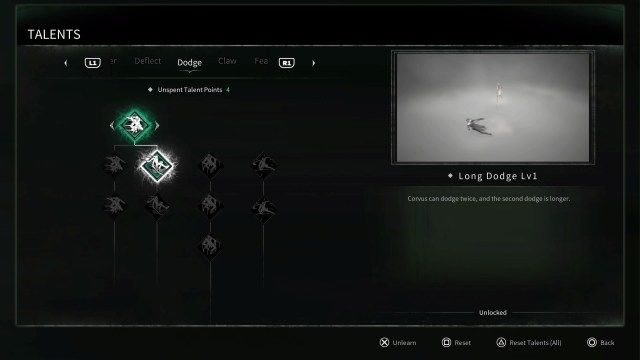
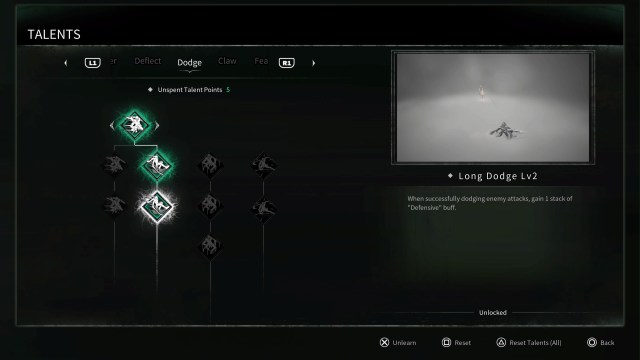
It is important to invest in the Long Dodge very early, as it gives players the ability to generate huge distance between themselves and their enemies through two quick dodges (one long and one short), which is the difference between life and death in some boss fights. The key to using the Long Dodge most effectively against enemies is not to lock onto them, as this will limit Corvus’ range of motion. When you learn to use this talent right, bosses and enemies will have much more difficulty hitting you, as you run circles around them, while gaining defensive buff stacks in the process.
Related: Thymesia Review | “Bring Out Your Dead” for a New Soulslike Adventure
Claw Talents
The Claw is an important tool in Corvus’ arsenal, as unlike his Saber and most Plague Weapons, it helps him to drain enemy wounds, so they can’t heal back to full strength. The following two talents in the claw skill tree are extremely useful:
Short Claw Lv1 & Lv2
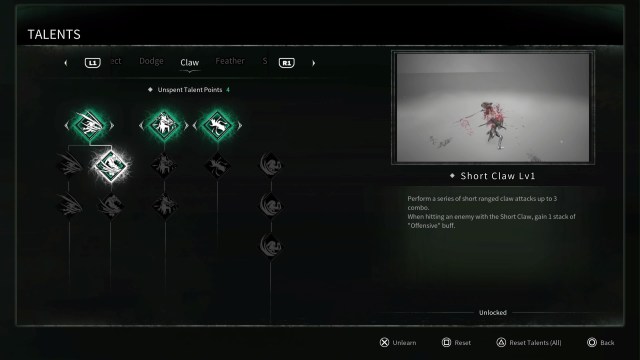
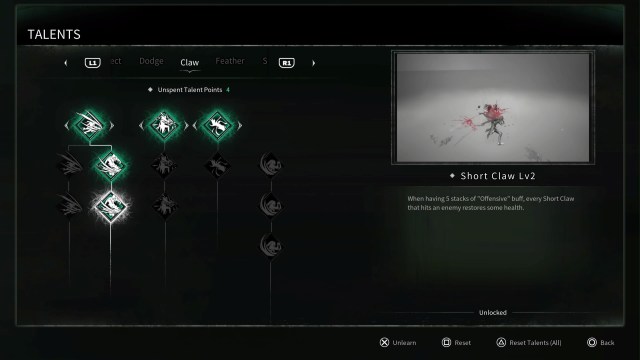
The Short Claw talent turns Corvus’ claw attack into a procession of furious, Wolverine-like swipes, making short work of enemy wounds. When it is fully upgraded, this talent can also regenerate Corvus’ health, rewarding aggressiveness in combat.
Energised Claws
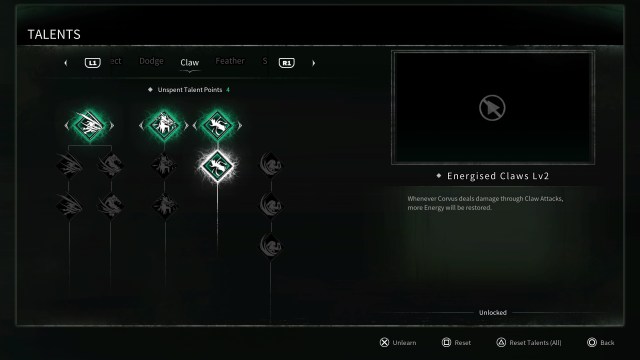
You might be sensing a theme… Just like the Energised Weapon and Energised Deflect, Energised Claws return energy to Corvus through claw attacks. This creates a powerful loop of using a plague weapon like the Bow to drain enemy’s health bars from afar, and then advancing with claw attacks to finish off foes and regain energy to begin the process over again.
Feathers
Feathers are Corvus’ most unassuming weapon, but when used correctly are crucial to success with their power to interrupt enemy attacks, keep wounds open, and deal with ranged obstacles. Here are two feather talents you should consider using in your Corvus build:
Full Winged
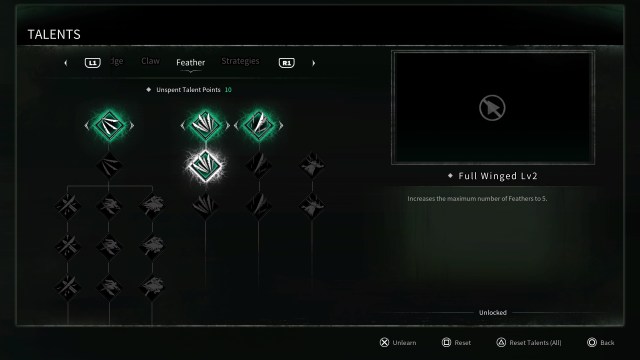
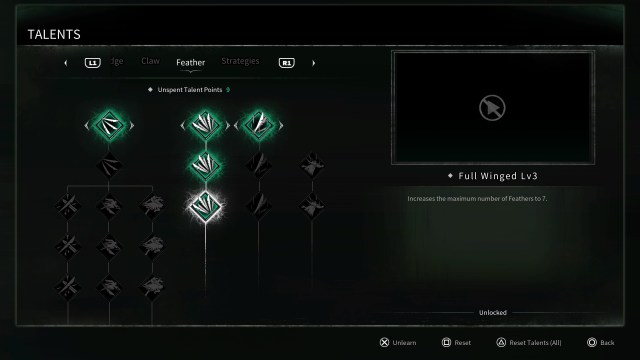
Through investing in the Full Winged talent, Corvus’ feathers increase from three to seven. When facing bosses who can quickly heal their wounds between vicious attacks, the more feathers at Corvus’ disposal, the better.
Growing Feathers
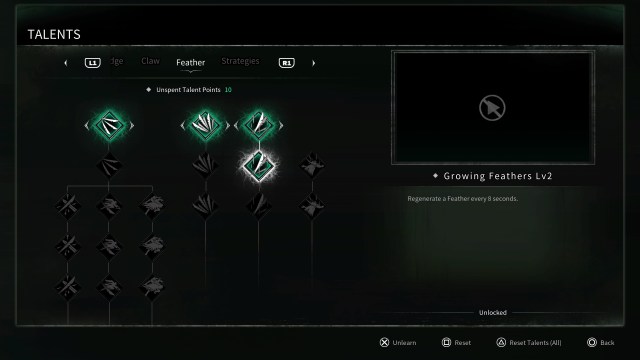
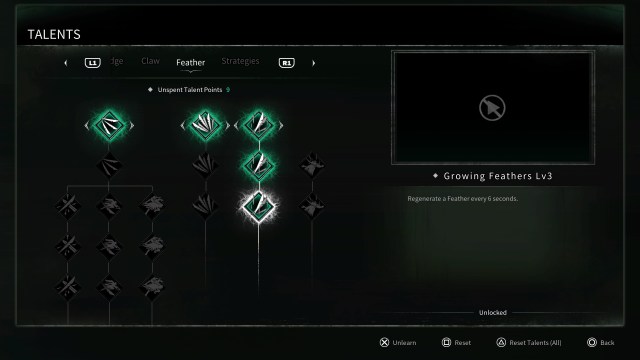
When fully upgrading Growing Feathers, Corvus’ feather regeneration improves from ten seconds to six seconds, allowing players to incorporate feathers into combat more frequently.
Related: Things You Need to Know Before Playing Thymesia
Strategies
Strategy is an all-encompassing tree that provides Corvus with a wide variety of miscellaneous boosts. Among the eclectic tree, two talents rise above the rest:
Plague Weapon Lv2
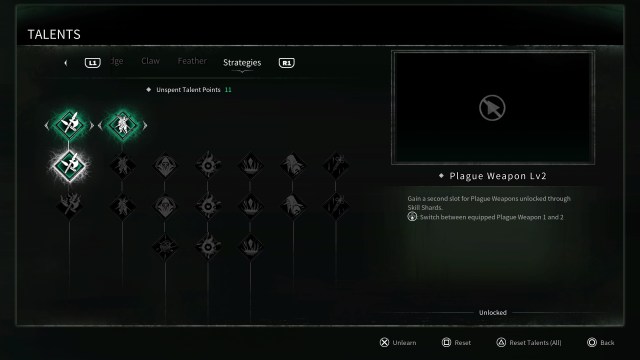
This is a simple talent that allows Corvus to use a second Plague Weapon slot. Since Plague Weapons are centric to Thymesia’s gameplay, it only makes sense to invest in an ability that allows you to bring two different ones into battle. It is suggested that you try to bring weapons with unique strengths to maximize the efficiency of Plague Weapon Lv2, i.e. one slot would have a Bow for ranged attacks, while the second would use Greatsword for close quarters combat for instance.
Plague Wounds
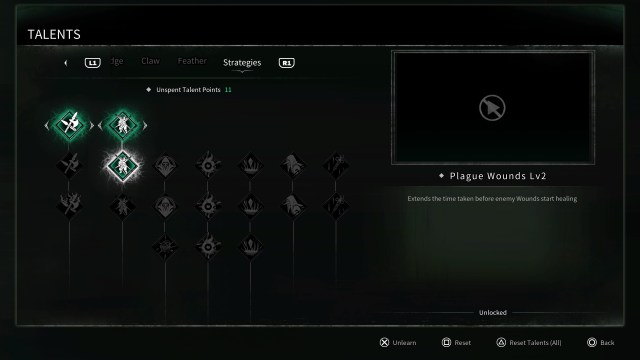
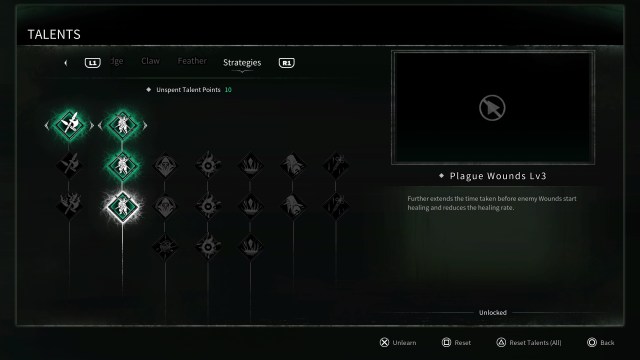
Thymesia’s unique enemy health mechanic gives Corvus’ foes two health bars, a white health bar representing their total vitality, and a green one representing their wounds. Enemy wounds can heal unless Corvus damages them with his claw, so the purpose of Plague Wounds Lv2 and Plague Wounds Lv3 is to extend the duration that Corvus’ enemies are wounded for, and slows their healing. This prevents adversaries from returning to full strength, making even Hermes Kingdom’s toughest enemies much easier to kill.

